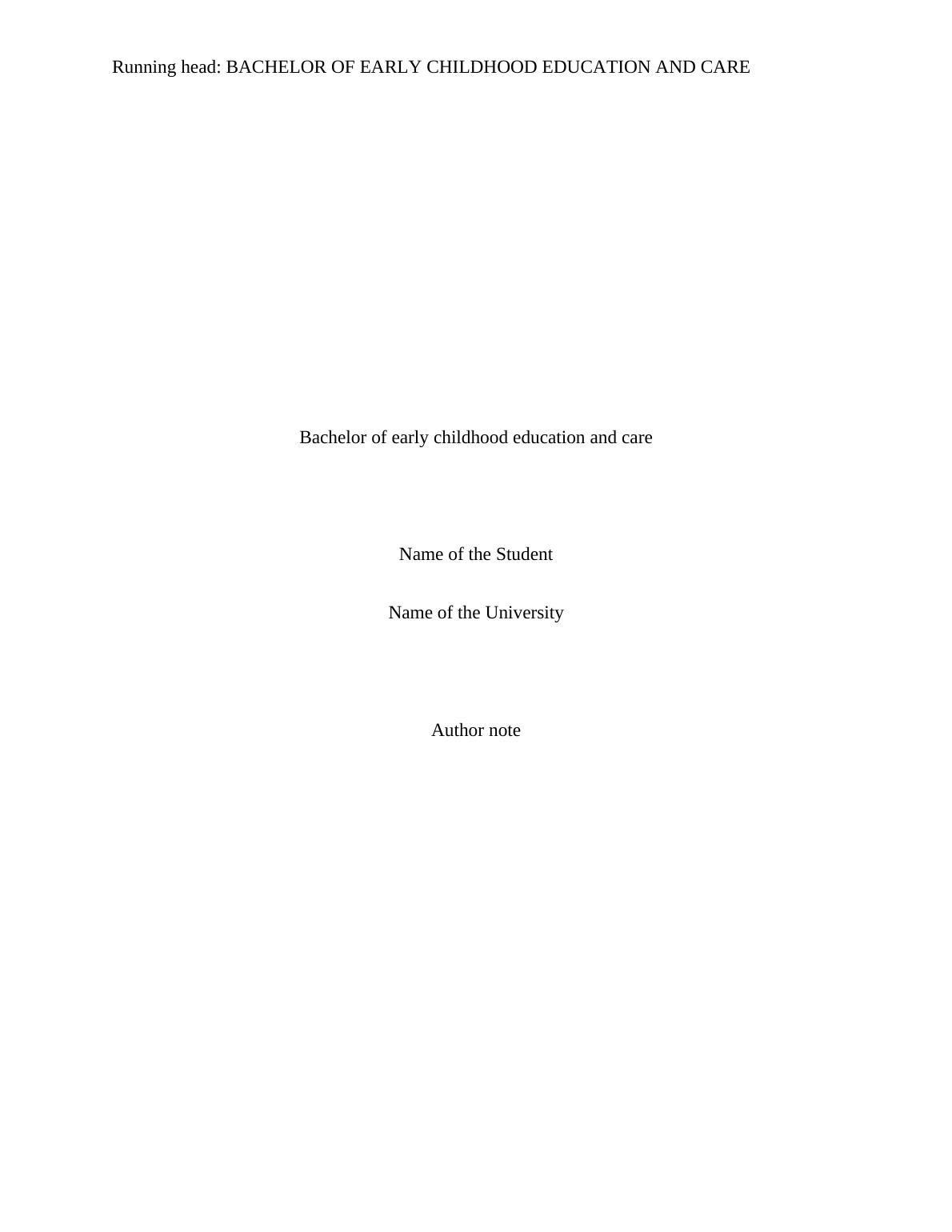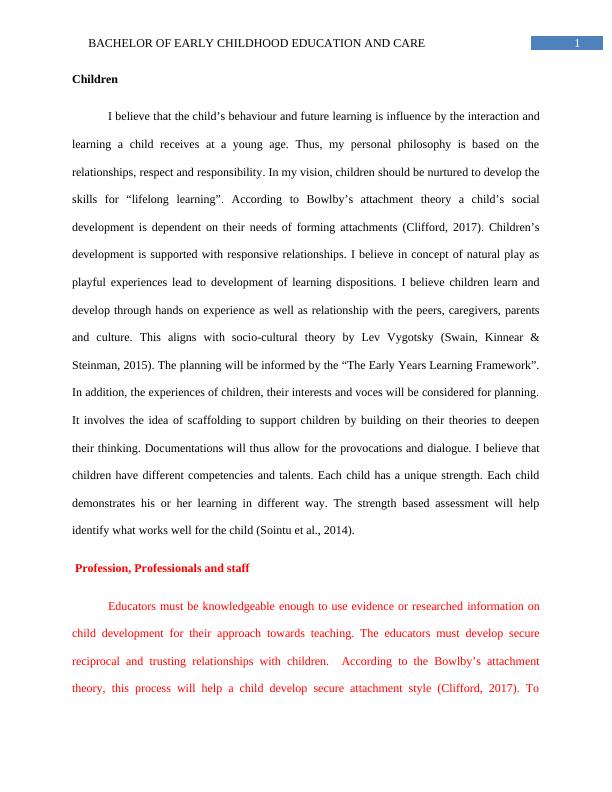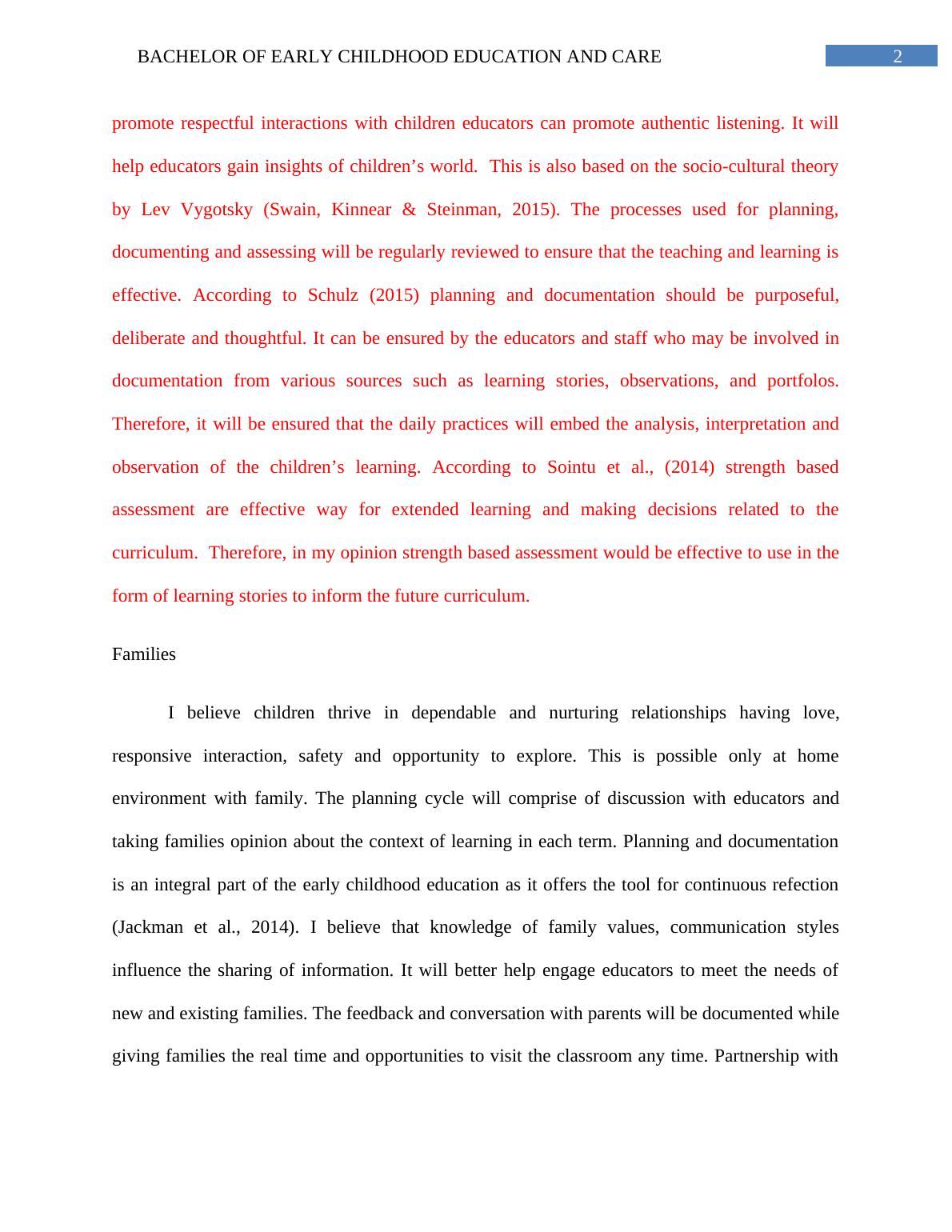Bachelor of Early Childhood Education and Care
6 Pages1181 Words365 Views
Added on 2021-04-21
About This Document
BACHELOR OF EARLY CHILDHOOD EDUCATION AND CARE 2 BACHELOR OF EARLY CHILDHOOD EDUCATION AND CARE Bachelor of early childhood education and care Name of the Student Name of the University Author note Children I believe that the child’s behaviour and future learning is influence by the interaction and learning a child receives at a young age. According to Bowlby’s attachment theory a child’s social development is dependent on their needs of forming attachments (Clifford, 2017). Attachment and
Bachelor of Early Childhood Education and Care
Added on 2021-04-21
ShareRelated Documents
End of preview
Want to access all the pages? Upload your documents or become a member.
Importance of Early Childhood Theories in Assessment and Documentation | Desklib
|10
|2687
|490
Education and Care Program Design in Early Childhood Setting
|11
|3075
|481
Personal Teaching Philosophy Assignment Report
|5
|1269
|35
Philosophy Statement as an Educator
|4
|662
|24
Developmental Psychology: Theories, Effects, and Nature vs. Nurture Debate
|12
|2483
|410
Personal Philosophy of Early Childhood Education
|5
|815
|77



